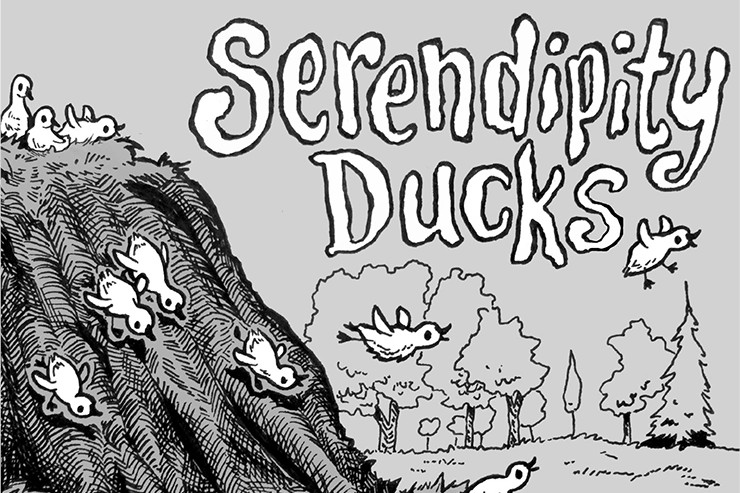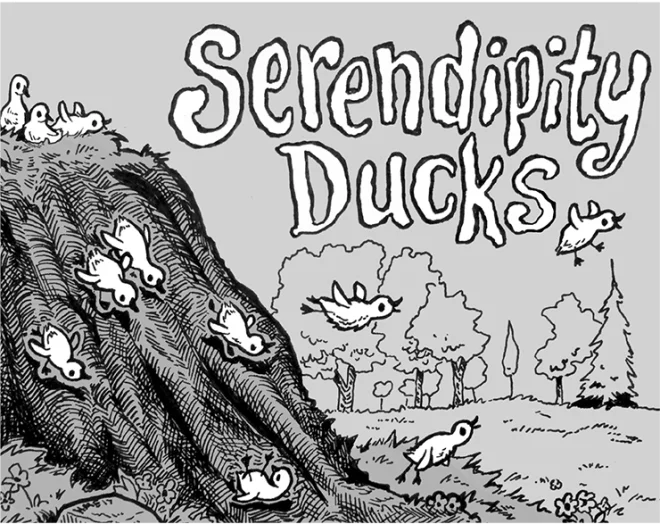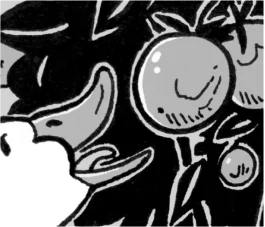
Ducks in the garden? That’s not a common problem, I’d think. But then again, if you have a pond or lake near your garden, why wouldn’t it be? Ducks like fresh food too! And while you shouldn’t feed ducks human food like bread, they’ll stay perfectly healthy foraging for cherry and grape tomatoes in your garden, as long as they’re ripe!
If you do have ducks in the garden, maybe that’s a good way to keep them out of your crop, by offering up a few plants of cherry tomatoes closer to the water line. Ducks also enjoy berries, grapes, watermelons, pears, and peaches!
Oh, wait, did you want to keep them OUT of your garden? Well, you might think so until you read today’s piece!
This story, “Serendipity Ducks” is by Gloria Griepenstroh, who says, “They pilfered our tomatoes—but then paid us back.” It’s the tale of a family whose prized tomato crop is suddenly beloved by some local ducks. She writes, “as a gardener, you come to accept the yearly fight with bugs, worms, deer, and raccoons that want your produce. But ducks? Never.” Fortunately, they devise a way to cohabitate, and in the end, they get an amazing experience out of it for everyone involved. I think you’ll like this one!
How Other Gardeners Handle Deer, Squirrels, and Even Ducks in the Garden
This story comes from our archive that spans over 30 years and includes more than 130 magazine issues of GreenPrints. We have plenty more stories from gardeners who have learned to live with animals in their gardens. Pieces like these that turn the joy of gardening into everyday life lessons always brighten up my day, and I hope this story does for you as well. Enjoy!

Serendipity Ducks
They pilfered our tomatoes—but then paid us back.
By Gloria Griepenstroh

Growing up, I’d often heard the saying, “Be careful what you wish for, you may get it.” That saying summed up the summer our Indiana farm family lived with a family of ducks.
Numerous times over the years my husband, Dave, wished some of the ducks that stopped by our backyard pond would take up residence. But they always stayed just a short time and moved on.
Last summer, though, Dave got his wish—a family of ducks liked the look of our pond and moved in. Our new neighbors included one female and two male ducks. They strutted around the yard with their chests stuck out and swam aimlessly around our pond, adding a lovely Norman Rockwell touch to our farm.
The small pond that became their home is only a few yards from our garden. I’m sure you can see where this tale is going.
One day we picked some of our prized tomatoes, placed them on the picnic table in the shade, and left to shop in town. When we returned home, we saw many of the beautiful tomatoes pecked full of holes! Seeds and juice were scattered all over the table.
As a gardener you come to accept the yearly fight with bugs, worms, deer, and raccoons that want your produce. But ducks? Never.
Suddenly the ducks were no longer endearing. Tomatoes are my husband’s number-one favorite garden crop: Nothing comes between Dave and his ‘maters. But once the ducks had a taste of the luscious fruit, it became clear that Dave wasn’t the only one that favored tomatoes.
It got worse. The ducks proceeded to bypass the table and help themselves straight from the garden. They would eat those that had fallen on the ground, but also the ones on the lower branches of our caged plants. Was nothing sacred to these critters?
What could we do?
A lightbulb flashed above Dave’s head: Maybe a little buckshot would do the trick. He got some shells then waited for the return of the feathered bandits.
They soon sauntered into the garden and proceeded to peck on the Roma tomatoes. The Romas? Those are my favorites!
Dave brought the shotgun up to his shoulder and pulled the trigger. He wasn’t close enough to hurt them; he just wanted to put a slight—but instructive—sting in their tailfeathers. The ducks did a hasty half-waddle, half-fly maneuver to the pond—and came right back for a tomato breakfast the next morning. Time to devise a Plan B.
Dave decided to fill a small feeder with ground corn and place it in the pine trees beyond the pond to entice the ducks in the opposite direction. The ducks loved the corn—as a first course. But they still ventured to the garden for their tomato entrées.
In the end, we simply resigned ourselves to cohabit with our feathered friends. After all, we always had ample tomatoes to give to family and friends, so why not “give” some to the ducks?
We had our limits, though. Whenever we caught them stretch-ing their necks to pluck plump ones higher on the vine, we would chase them away. I reminded them as they fled, “Stick to the low-hanging fruit, please.”
As the summer wore on, the ducks gave us a surprising reward for those damaged tomatoes. The female duck expanded her family—with 13 cute little ducklings. Watching the little ones grow from fuzzy yellow balls into young birds was indeed a pleasure.
When fall approached, the mother duck decided it was time to teach her youngsters how to fly. Against a backdrop of bronze and gold trees, she marched all 13 ducklings out to the pond dam. There she calmly flapped her wings as she flew down the gentle back slope of the ten-foot-tall earthen dam. She rightly surmised that this demonstration would show her ducklings how to stay in the air for a short time. What an ingenious way to give a first lesson in flying!
The young ducklings watched their mother with interest, and soon several brave ones gave it a try. They half-waddled, half-ran off the bank, flapped their tiny wings, and, like magic, actually flew a short distance. A few more followed the lead, and then more. The first flying lesson was a success—and a thrill to watch!
Several weeks later the duck family was gone, off for a warmer climate for the winter. Had the ducks moved on after my husband’s first gun blasts, our family would have missed the joy of watch-ing those ducklings paddle about our pond and learn to fly. Our children and grandchildren would never have seen them progress from eggs in a nest to youngsters growing up in life.

Serendipity is not a word I usually associate with gardening, but our summer with ducks is best described by that term. What started out as a bad experience became an unexpected and wonderful one. ❖
By Gloria Griepenstroh, published originally in 2017, in GreenPrints Issue #111. Illustrated by Hannah England

Have you ever had ducks in the garden? Did this remind you of a similar story you’d like to share? Leave a comment below, I’d love to hear it.




I loved this story. We have a large pond that touches the back of our lot with lots of ducks, mostly malards. I have been feeding them cracked corn since the summer in 2019. It all started with a few ducks, then the families in the spring, now upwards to 30+. About 40′ away is my new tomato garden that I have prepared for the spring of 2023. I might see the same result.